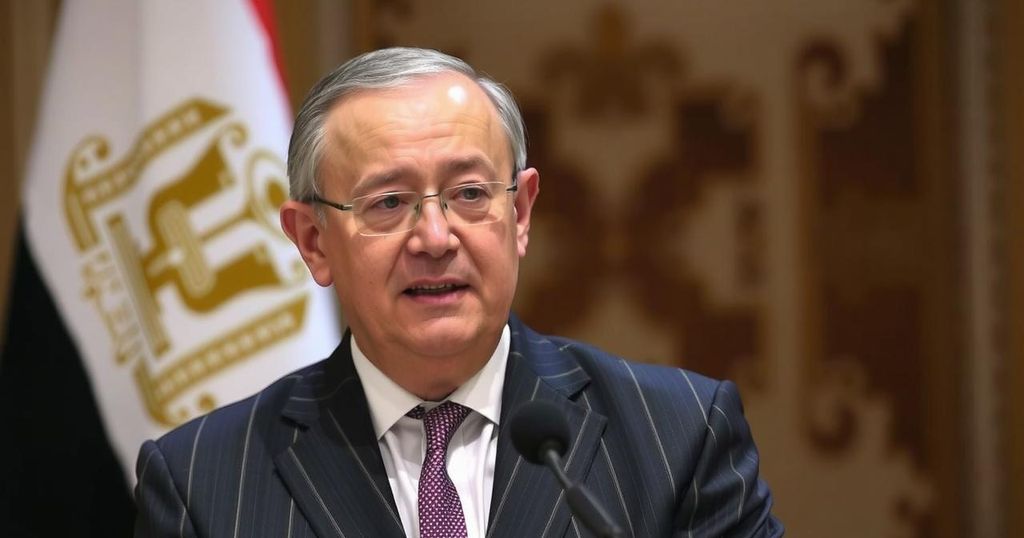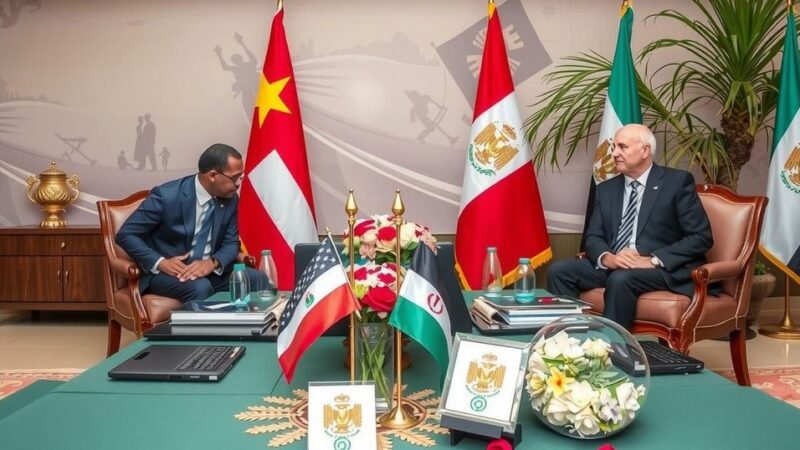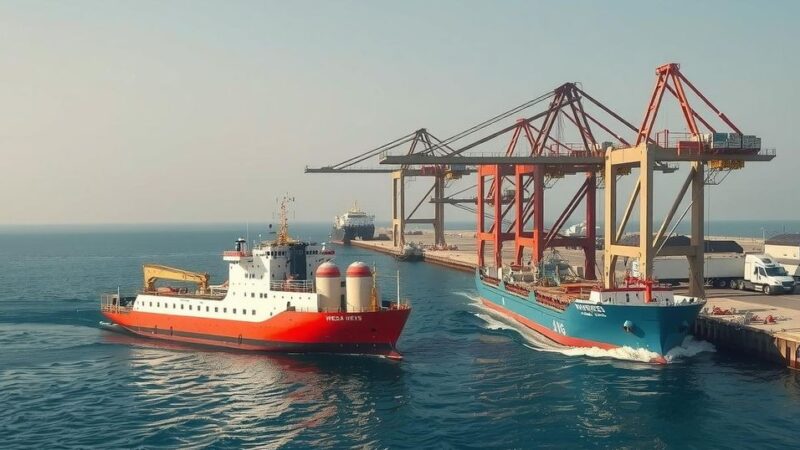Egypt’s Foreign Minister Badr Abdelatty has postponed his visit to Syria amid heightened media campaigns denouncing the Islamist group, Hayat Tahrir al-Sham (HTS), as a terrorist organization. The delay has prompted questions about Egypt’s diplomatic stance regarding Syria, especially following a recent phone call with the Syrian transitional government. While some perceive this as a sign of potential engagement, the prevailing narrative emphasizes Egypt’s refusal to negotiate with terrorist factions, maintaining a complex position in the region.
The planned visit of Egypt’s Foreign Minister Badr Abdelatty to Damascus has been postponed, as reported by The New Arab’s Arabic sister outlet, Al-Araby Al-Jadeed. This delay has sparked speculation regarding the Egyptian regime’s position on Syria, especially after Abdelatty’s recent phone conversation with Asaad Al-Shibani, the head of Syria’s transitional government. The postponement arrives amidst a severe media campaign in Egypt that labels Hayat Tahrir al-Sham (HTS) as a terrorist organization, indicating that Egypt maintains a strict stance against engagement with groups it considers terrorist. This campaign has been particularly pronounced in state-controlled media, suggesting a unified message that Egypt does not negotiate with what it deems as terrorist entities.
The Egyptian media has been relentless in diminishing the image of HTS and its leader, Ahmed al-Sharaa, who has been referred to by his previous alias, Abu Muhammad al-Jolani, reinforcing their portrayal as terrorists. Such rhetoric stands in contrast to the actions of other regional nations, which have begun engaging with al-Sharaa and the transitional government in Syria. Despite Abdelatty’s phone call hinting at a possible diplomatic thaw, the postponement of his visit reflects a reluctance to change Egypt’s official stance on the Syrian conflict.
Former Egyptian Deputy Foreign Minister Ambassador Abdullah Al-Ashaal remarked that Abdelatty’s communication with Syria was noteworthy but should not be mistaken for an endorsement of the new Syrian government. He articulated that while this indicates a pragmatic approach to the realities in Syria, it does not signify a transformation in Egypt’s policy regarding the Syrian crisis. Since the 2013 military coup led by President Abdel Fattah Al-Sisi, the Egyptian regime has consistently suppressed dissent and has actively opposed Islamist factions. Sisi’s previous support for the Assad regime and his prohibition on Syrian nationals entering Egypt exemplifies his apprehensions about potential challenges to his authority.
HTS is classified as a terrorist entity by several nations, including the United States and Turkey, although the group has ceased execution of military operations beyond Syria and has distanced itself from Al-Qaeda. The recent shifts in Western and regional attitudes toward HTS indicate an acknowledgment of the group’s potential influence in a post-Assad Syrian landscape.
In conclusion, the postponement of Badr Abdelatty’s visit to Syria amidst a hostile media atmosphere illustrates the complex and cautious nature of Egypt’s foreign policy towards the Syrian conflict. While some communications have indicated a possible diplomatic engagement, the overarching narrative conveyed through state media remains firmly opposed to any associations with HTS and suggests that Egypt is unlikely to recalibrate its stance in the near future.
The topic of Egypt’s foreign relations, particularly regarding Syria, has been intricately linked to the geopolitical dynamics of the Middle East, especially since the Syrian civil war commenced. Egypt under President Abdel Fattah Al-Sisi has shown unwavering support for the regime of Bashar al-Assad, while simultaneously suppressing Islamist movements domestically. The stance toward HTS, a significant player in the Syrian conflict, reveals underlying fears of spillover effects that could challenge Sisi’s authoritarian governance, especially given the historical context of Egypt’s support for the ousted Islamist President Mohamed Morsi during the Arab Spring.
The Egyptian Foreign Minister’s postponed visit to Syria underscores the intricate balancing act that Egypt must perform in the face of mounting criticism and geopolitical realities. While recent communications hint at a desire for dialogue, the entrenched negative narratives surrounding HTS and a firm stance against perceived terrorism reflect lingering fears about political stability within Egypt and its foreign policy direction. The current situation thus showcases Egypt’s cautious approach amid shifting regional dynamics.
Original Source: www.newarab.com







